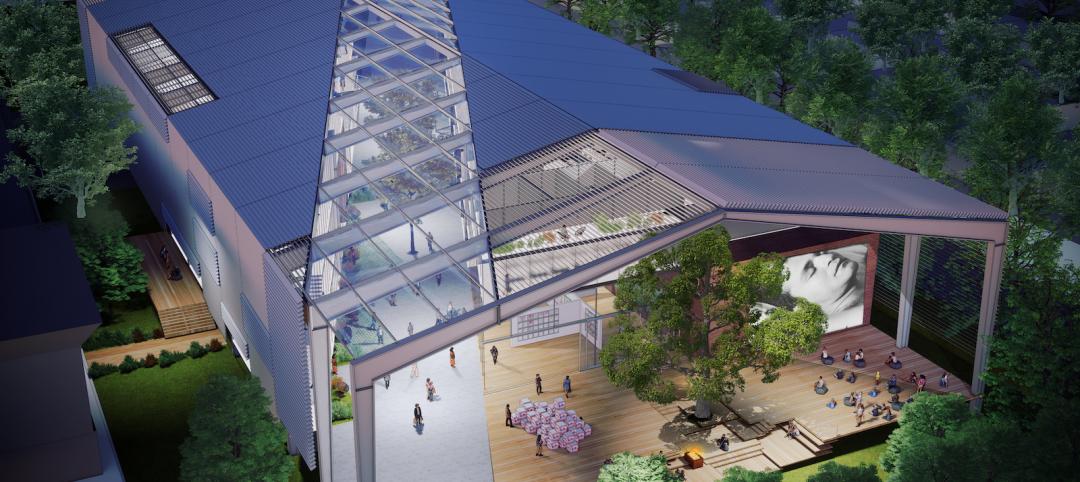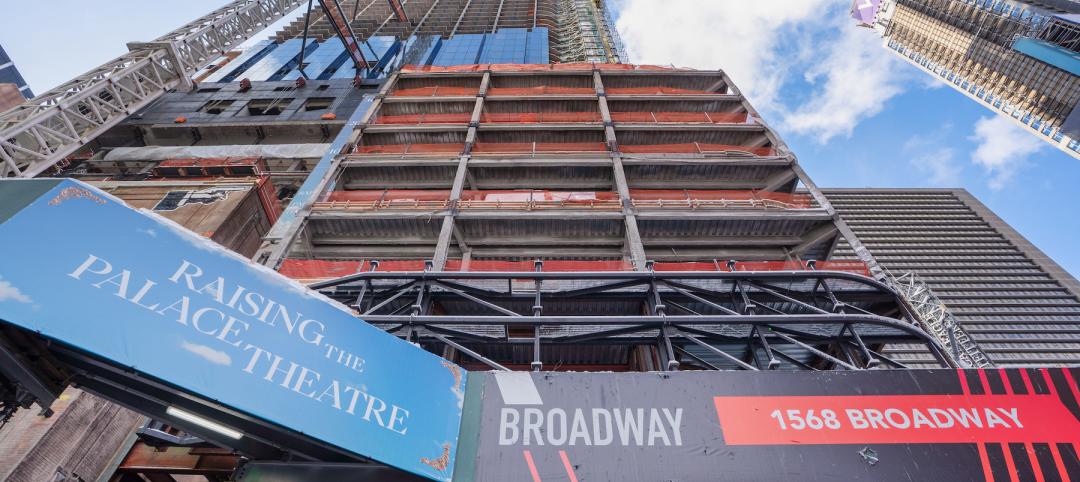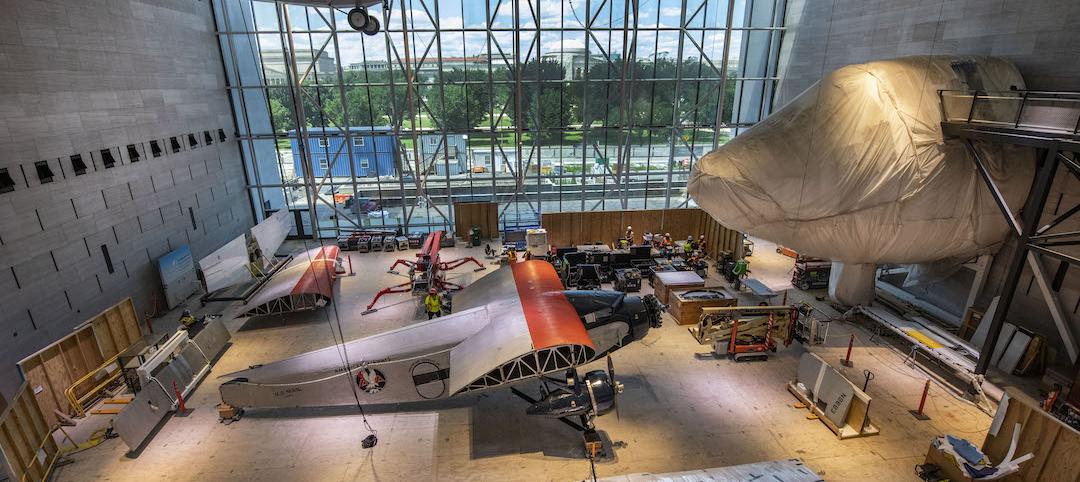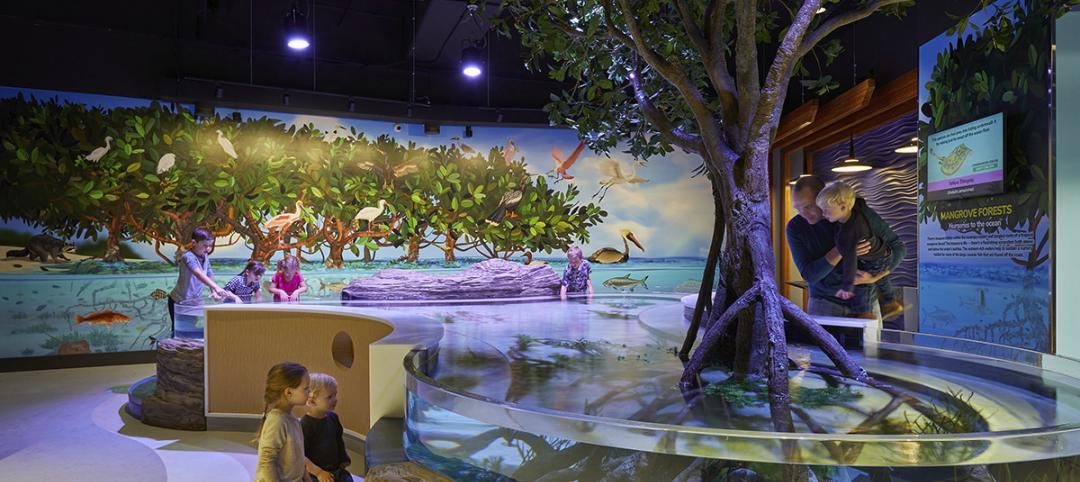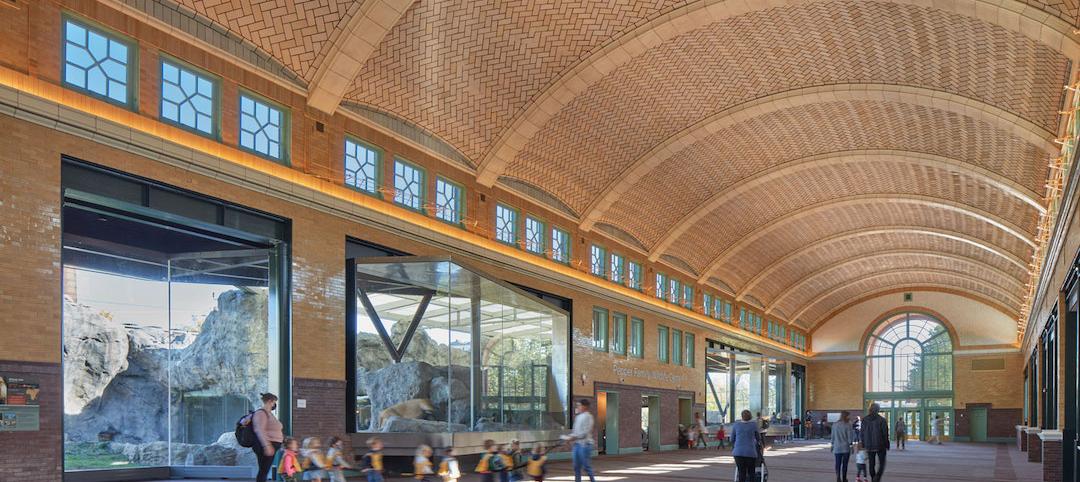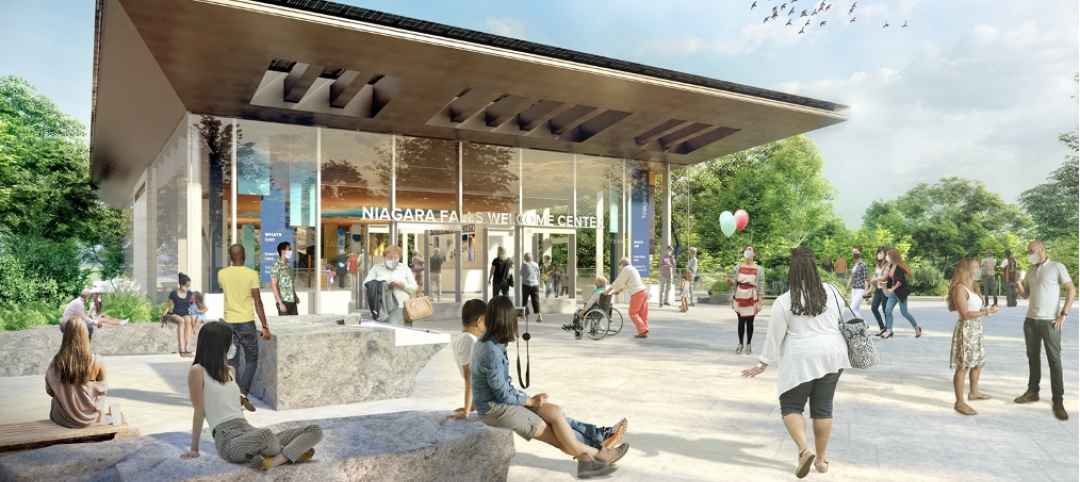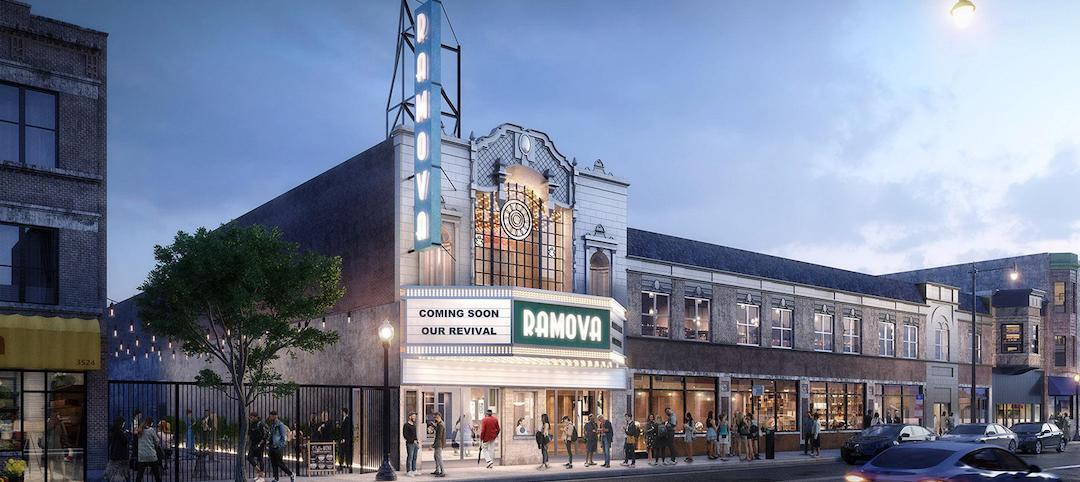 |
|
When rebuilding the observation tower, existing brick was taken down to a constant course, which allowed new brick to blend at the match line. |
For 38 years, the Pere Marquette Depot sat boarded up, broken down, and fire damaged. The Prairie-style building, with its distinctive orange iron-brick walls, was once the elegant Bay City, Mich., train station. The facility, which opened in 1904, served the Flint and Pere Marquette Railroad Company when the area was the epicenter of lumber processing for the shipbuilding and kit homebuilding industries.
In 1953, the 9,300-sf depot underwent an atomic-age modernization to convert it into a Greyhound bus terminal. Classical features like the 66-foot-high observation tower, wraparound canopy, ornamental metal brackets, and porte-cochere were demolished. After the bus station closed in 1969, the property sat vacant for more than three decades.
It took the depot's owner, Great Lakes Center Foundation, from 2002 to 2005 to patch together $3.85 million from local, state, and national sources to begin an extensive but frugal renovation that would bring the building back to life as a community center run by the local Convention and Visitor's Bureau and as offices for the Bay Area Community Foundation.
The Building Team, headed by Quinn Evans | Architects of Ann Arbor, Mich., with local firms Gregory Construction as GC and MacMillan Associates Inc. as engineer, had a mess on its hands. The masonry walls were in decent shape, but the foundation was undermined and the interior was devastated by toxic pigeon guano and fire and water damage, which destroyed most of the ornamental plaster walls and ceilings. The mechanical equipment, boiler, piping, plumbing fixtures, light fixtures, and most of the wiring had been stripped.
The Building Team salvaged the wainscoting and most of the windows and doors, replaced missing tiled canopies, the Spanish clay tile roof, and the observation tower, and repositioned the depot for use as a twenty-first-century community and office building. Although the project did not seek LEED certification, recycled content, low-VOC materials, low-flow plumbing fixtures, radiant heating, and light-sensor controls were used.
“They've done a wonderful job with both the interior and exterior work,” said Reconstruction Awards judge David Callan, SVP Environmental Systems Design, Chicago. Fellow judge Ken Osmun, group president of construction at Wight & Co., Darien, Ill., marveled at the project's bang for the buck. “The budget was so low and they had to make the depot the focal point of the community. I can't imagine the challenges they had to overcome.” —Jay W. Schneider, Senior Editor

Related Stories
University Buildings | Feb 18, 2022
On-campus performing arts centers and museums can be talent magnets for universities
Cultural facilities are changing the way prospective students and parents view higher education campuses.
Resiliency | Feb 15, 2022
Design strategies for resilient buildings
LEO A DALY's National Director of Engineering Kim Cowman takes a building-level look at resilient design.
Cultural Facilities | Jan 27, 2022
Growth in content providers creates new demand for soundstage facilities
Relativity Architects' Partner Tima Bell discusses how the explosion in content providers has outpaced the availability of TV and film production soundstages in North America and Europe.
Cultural Facilities | Jan 18, 2022
A building in Times Square aspires to be a marketing and arts tool
The 580-ft TSX Broadway will have several LED signs on its exterior, and host an existing 27,000-sf theater that was hoisted 30 ft above street level.
Cultural Facilities | Dec 16, 2021
Museums and other cultural spaces reconsider how to serve their communities
Efforts to raise capital for cultural buildings became necessary during the COVID-19 health crisis.
Giants 400 | Nov 19, 2021
2021 Cultural Facilities Giants: Top architecture, engineering, and construction firms in the U.S. cultural facilities sector
Gensler, AECOM, Buro Happold, and Arup top BD+C's rankings of the nation's largest cultural facilities sector architecture, engineering, and construction firms, as reported in the 2021 Giants 400 Report.
Cultural Facilities | Nov 19, 2021
Goettsch Partners completes Lincoln Park Zoo’s Pepper Family Wildlife Center
The project doubles the size of the previous lion habitat.
Cultural Facilities | Nov 17, 2021
Henning Larsen-designed Shaw Auditorium opens at the Hong Kong University of Science and Technology
The project celebrated its grand opening as part of HKUST’s thirtieth anniversary celebration.
Cultural Facilities | Oct 19, 2021
Niagara Falls is getting a bigger Welcome Center
The GWWO Architects-designed building will mostly sit on the site of the center it replaces.
Reconstruction & Renovation | Oct 13, 2021
Restoration of Ramova Theater in Chicago’s Bridgeport Neighborhood begins
The building was originally built in 1929.


